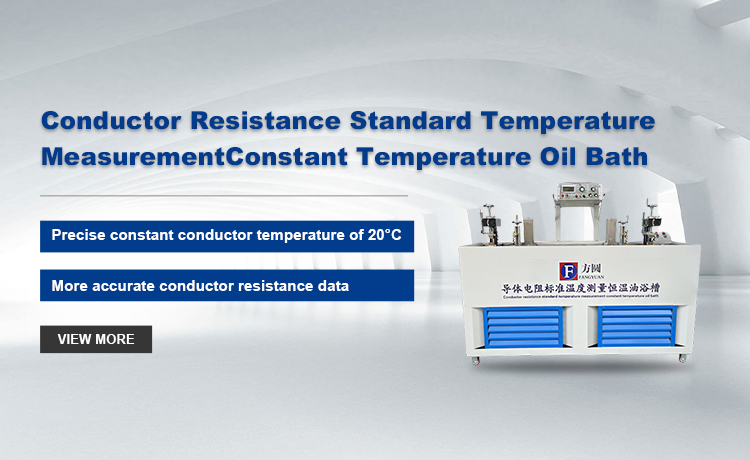Tensile Testing Equipment Manufacturer for Reliable Material Strength Analysis
Understanding Tensile Testers The Backbone of Material Testing
In today’s rapidly evolving industrial landscape, quality assurance remains paramount. At the heart of this assurance lies the tensile tester—an indispensable tool in material testing that helps industries gauge the performance and durability of their products. In this article, we will explore the significance of tensile testers, their operational mechanics, and the key players in the manufacturing landscape.
What is a Tensile Tester?
A tensile tester, also known as a universal testing machine (UTM), is a sophisticated instrument designed to evaluate the tensile properties of materials. By applying a uniaxial tensile force to a specimen, the machine measures how the material reacts under stress. Key parameters assessed during the testing process include tensile strength, yield strength, elongation, and modulus of elasticity. These metrics are vital for manufacturers in industries such as construction, automotive, and aerospace, where material integrity can directly impact safety and performance.
How Tensile Testers Operate
Tensile testing typically involves gripping a specimen—usually a standardized sample of material—between two clamps. The tester then pulls the specimen at a controlled rate until it either yields (deforms without breaking) or fractures. During this process, it continuously measures the amount of force applied and the corresponding elongation of the material.
The data collected throughout the test is then plotted on a stress-strain curve. This curve visualizes the material's behavior under stress, providing invaluable insights. The area under the curve signifies the material's toughness, while the maximum point indicates its tensile strength.
The Importance of Accurate Testing
Accurate materials testing through tensile testers is critical for several reasons
1. Quality Control Manufacturing processes can introduce inconsistencies in materials. Tensile testers help ensure that products meet specifications and perform as expected.
2. Safety In industries where structural integrity is vital, such as construction and automotive, understanding a material's tensile properties can be a matter of life and death.
tensile tester factory

3. Research and Development As industries push for new innovations, tensile testing supports R&D by providing data that can drive improvements in material design and selection.
4. Regulatory Compliance Many industries are governed by strict standards and regulations that mandate testing for materials. Tensile testers play a key role in ensuring compliance with these standards.
The Role of Tensile Tester Factories
Tensile tester factories are pivotal in the production of these testing machines. They leverage advanced technologies, such as computer numerical control (CNC) machining and high-precision manufacturing processes, to create reliable and efficient tensile testers.
Leading factories invest heavily in research and development to stay abreast of the latest advancements in testing technology. They also prioritize the use of high-quality raw materials to ensure the durability and longevity of their machines. Furthermore, many factories offer customization options, allowing clients to specify features that cater to their unique testing requirements.
Prominent tensile tester manufacturers around the world are continuously working towards enhancing the functionalities of their machines. This includes incorporating software that allows for real-time data analysis, user-friendly interfaces, and enhanced connectivity for data sharing.
Future Trends in Tensile Testing
As technology advances, the landscape of tensile testing is rapidly evolving. The integration of artificial intelligence (AI) and machine learning into tensile testing processes is paving the way for more precise measurements and predictive modeling of material behaviors. Additionally, the advent of automation in testing procedures promises greater efficiency and reduced human error.
Another noteworthy trend is the increasing emphasis on eco-friendly practices. As industries shift towards sustainability, tensile testing equipment is being designed with energy-efficient features and sustainable materials.
Conclusion
Tensile testers represent a critical component of quality assurance across various industries. By providing essential insights into material properties, they help ensure the safety, reliability, and performance of products. The factories that produce these machines are integral to this ecosystem, driving innovation and ensuring that industries worldwide have access to the best tools for material testing. As technology continues to advance, the role of tensile testers will only become more significant in the quest for quality and sustainability in manufacturing.
-
Why the Conductor Resistance Constant Temperature Measurement Machine Redefines Precision
NewsJun.20,2025
-
Reliable Testing Starts Here: Why the High Insulation Resistance Measuring Instrument Is a Must-Have
NewsJun.20,2025
-
Flexible Cable Flexing Test Equipment: The Precision Standard for Cable Durability and Performance Testing
NewsJun.20,2025
-
Digital Measurement Projector: Precision Visualization for Modern Manufacturing
NewsJun.20,2025
-
Computer Control Electronic Tensile Tester: Precision and Power for the Modern Metal Industry
NewsJun.20,2025
-
Cable Spark Tester: Your Ultimate Insulation Assurance for Wire and Cable Testing
NewsJun.20,2025
 Copyright © 2025 Hebei Fangyuan Instrument & Equipment Co.,Ltd. All Rights Reserved. Sitemap | Privacy Policy
Copyright © 2025 Hebei Fangyuan Instrument & Equipment Co.,Ltd. All Rights Reserved. Sitemap | Privacy Policy
